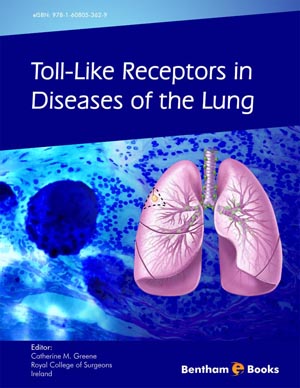Abstract
Mycobacterium tuberculosis expresses molecular motifs that are potent TLR agonists, targeting especially TLR2, and resulting in rapid activation of cells of the innate immune system. The control of experimental acute M. tuberculosis infection seems rather independent of the presence of TLRs, as is the induction of adaptive immunity to mycobacteria, while long term control of chronic infection might be more TLR dependent. Conversely, some molecules produced by M. tuberculosis can modulate the host innate TLR mediated responses. Control of M. tuberculosis infection depends on a balance between the host recognition of the pathogen and activation of both innate and adaptive immune responses, and immune evasion strategies developed by the bacteria.
Keywords: TLRs, tuberculosis, mycobacterial cell wall, PAMPS, macrophages, dendritic cells.






















